Why is my cat growling? Vet reveals 3 common reasons and whether it’s something to worry about
Wondering, 'Why is my cat growling?' An expert shares three reasons and what to do about it.
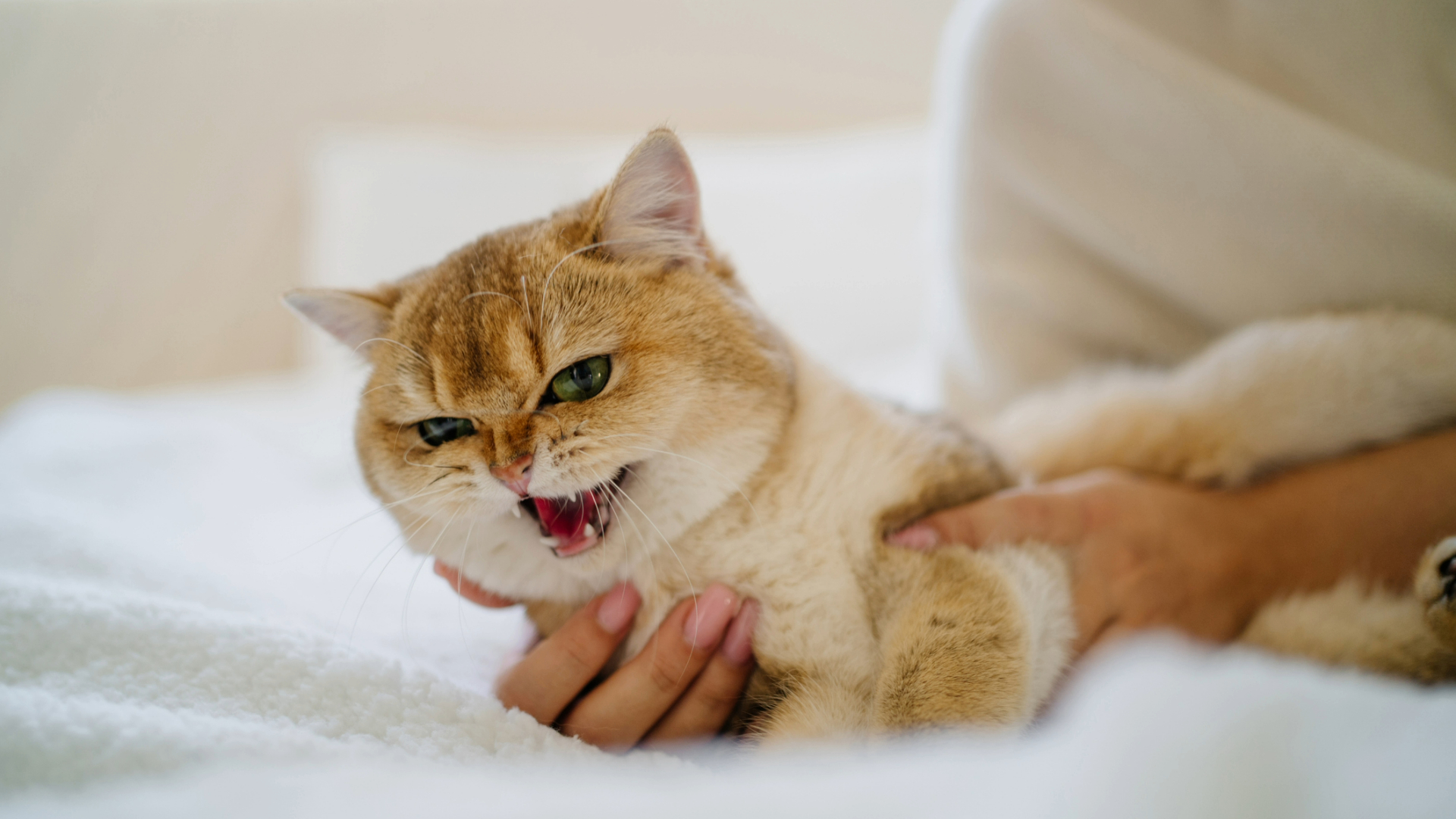
Have you ever heard an awful, scary noise coming from your cat and thought, “Why is my cat growling?” You might have questioned if cats can even growl. Well, I’m here to tell you all about cat growling – why they do it, when they do it, and what you should do about it.
Cat growling is scary for a reason – it’s generally meant as a warning – so trust your instincts and back off while you work out why your cat is making that noise! If your cat is feeling protective around resources (like the best cat food), this could be one reason for it.
I’ve been a companion animal vet for eight years now, and I worked in a feline-only practice for a while. I’ve also been a cat foster parent, which was one of the most rewarding things I’ve ever done. In other words, I’ve spent a lot of time around cats, and heard my fair share of cat growling. I’ll illustrate some of the reasons below with real-life examples of cats I’ve had or treated.
Why is my cat growling?
So, without further ado, let’s start talking about why cats growl. Generally, growling is a warning for you (or another animal) to stop doing something.
Cats are individuals, and some will growl more frequently than others or have a lower ‘threshold’ for growling. But, in all cases, growling is an attempt to communicate something, so watch cat body language and try to understand what it is they’re saying.
1. They're in pain
This is one that, as a vet, I’ve seen a lot. A cat in pain will growl in two ways. Firstly, you might hear a general low continual growl, a little like a moan in humans – this isn’t necessarily to communicate anything specifically, except the feeling of pain. You might notice a cat growling while eating, growling while urinating, or growling while walking – this is a general pain growl.
Get the best advice, tips and top tech for your beloved Pets
But if you try to approach a cat in pain, they might start growling (or intensify their growl). This is now a warning. Cats in pain feel threatened, as they know they’re less able to get away and are worried about increasing their pain by trying. They’ll growl to warn people (or other animals) away, in the hope they’ll back off and leave them alone.
Cats growling because they’re in pain might not have a visible injury, but they’ll usually be hiding or trying to get to somewhere they see as safe. They might not want to eat, and may be dragging a leg or reluctant to use a paw. Not sure? Read more about the signs of pain in cats.
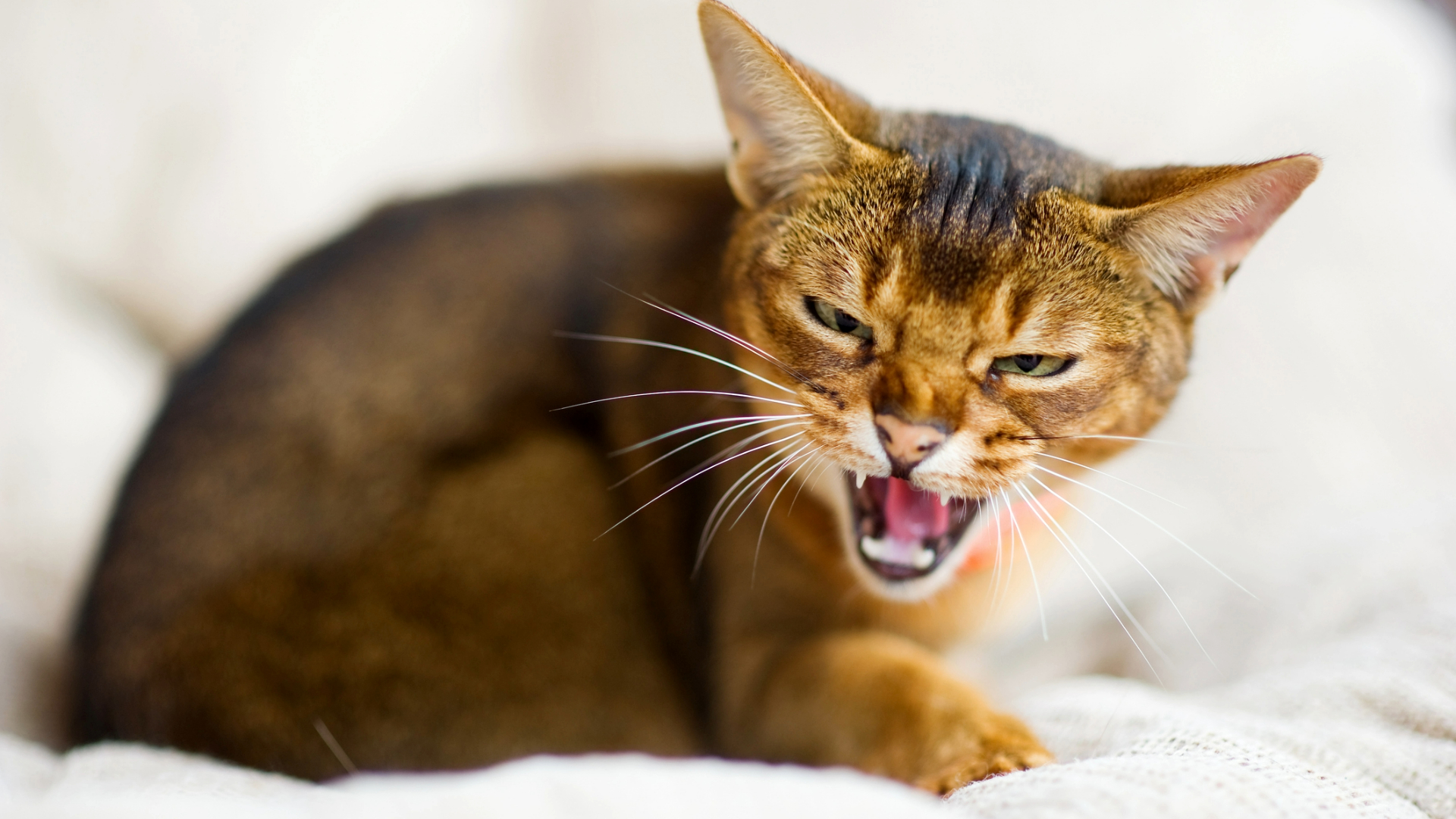
2. They're feeling stressed
Stressed cats are another common sight in the vet clinic. Cats growl when they’re stressed as a warning to stay back – they’re on the edge, and trying to avoid a fight.
Cats can have chronic stress, usually caused by territory battles or changes in the home. They can also suffer from acute stress, such as the anxiety they feel travelling into the vets. Either way, they might end up growling in an attempt to get the space they need.
You might notice other signs of stress in cats, such as hiding away, not eating properly, urinating in strange places, or overgrooming. If this sounds like it could be your cat, our guide on anxiety in cats should help.
3. They’re worried about their resources (food, water, bed, litter tray)
Cats are territorial by nature, and it’s common for cats to worry about their resources when another animal or person approaches them.
If your cat is growling when their resources are approached, it’s likely they’re concerned about competing or losing access to a resource.
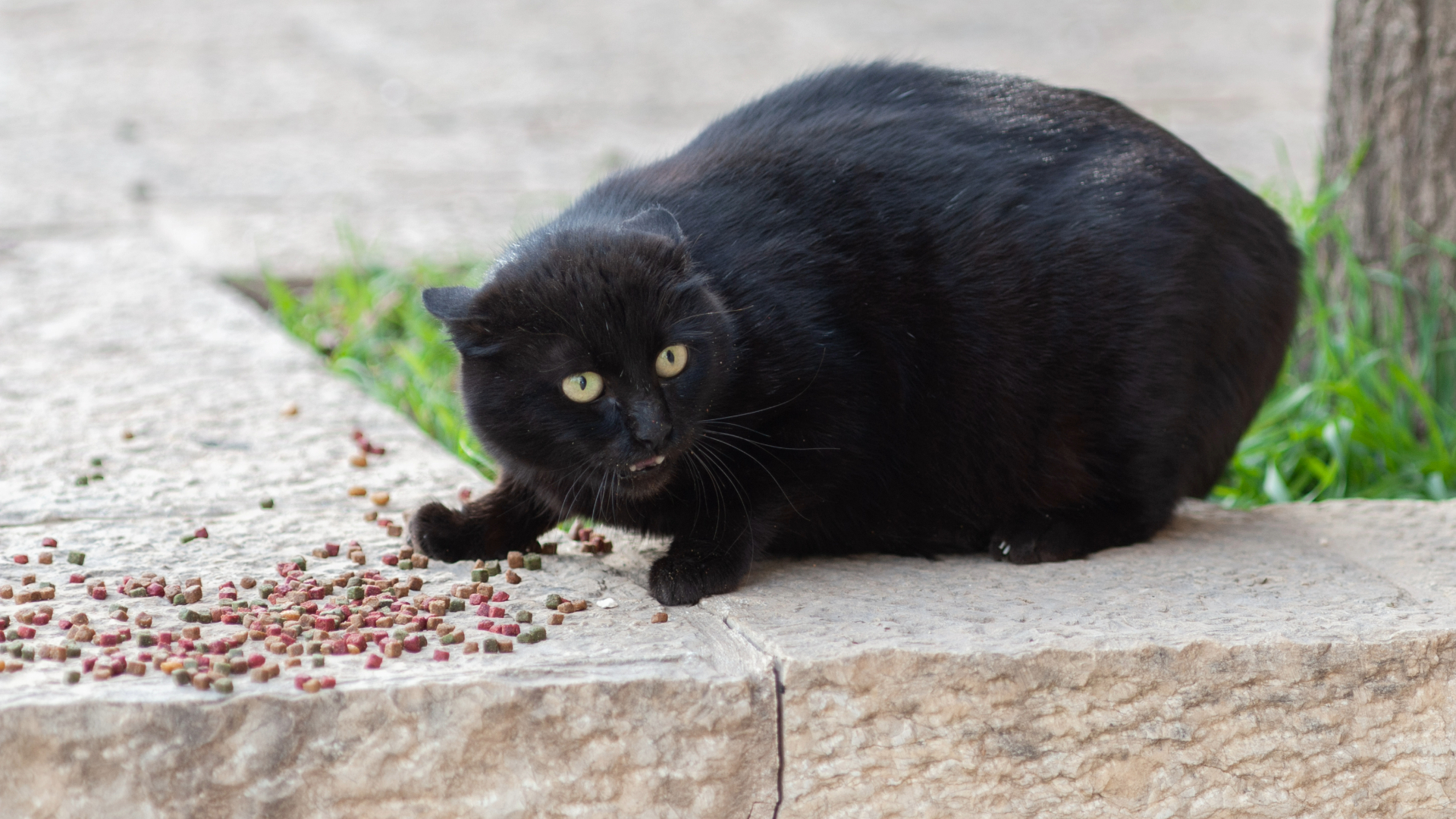
Should I take my cat to the vet for growling?
Unless you’re fairly clear why your cat is growling, a vet visit is in order. This is because cats are masters at hiding the signs of pain, and by doing so can be quite ill before they get brought to the vets. If your cat has started growling recently and you aren’t sure why, a trip to the vets to rule out pain is a good next move.
If, on the other hand, you’re confident your cat is growling for a particular reason, you don’t normally have to take them to the vet. For example, if your cat is growling when the new kitten comes close, or if your cat is growling when the baby tries to climb on the cat tree.
If your cat is only growling in single situations like this, and their growling has a clear reason, they don’t need to go to the vet. Having said that, you can always take them in for a peace-of-mind check if there’s something you can’t put your finger on.
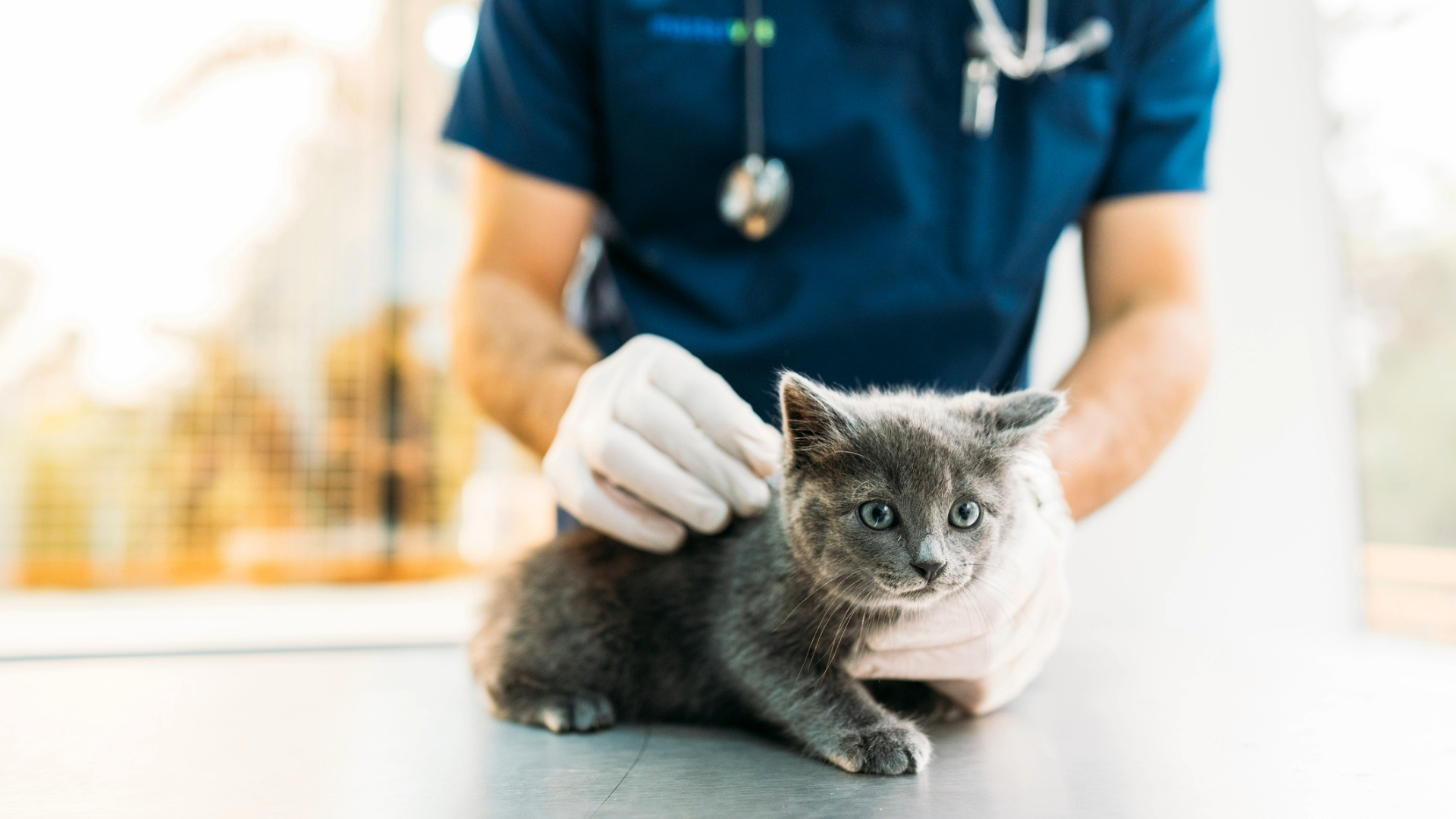
How should I react if my cat growls?
If your cat is growling, the first thing to do is back off and give them some space. Growling is a normal, natural communication – and it’s a warning that they’re considering attacking if you continue what you’re doing. So if it’s safe to do so, you should stop – immediately – and try to work out why your cat is growling.
In some cases, the reason your cat is growling will be obvious – maybe they have a broken leg and you’re trying to get them into the car. In that case, you’ll still need to work out if there’s a way to do what you need to do with the least stress to your cat. You’ll also need to take care not to get bitten.
If you can’t see a reason for it, it’s time for a vet visit – but be cautious about approaching them as they’re likely to lash out.
Some cats growl more than others and sound quite aggressive. But most cats are only aggressive if they’re anxious or fearful. You might find our article on how to calm an aggressive cat helpful if your cat seems to be growling a lot.
Never punish a cat for growling – they’re trying to communicate their unease. Punishing them will just make them resort to attacking sooner next time. Instead, try to respect their growl and think of a new way to do what you need to do.
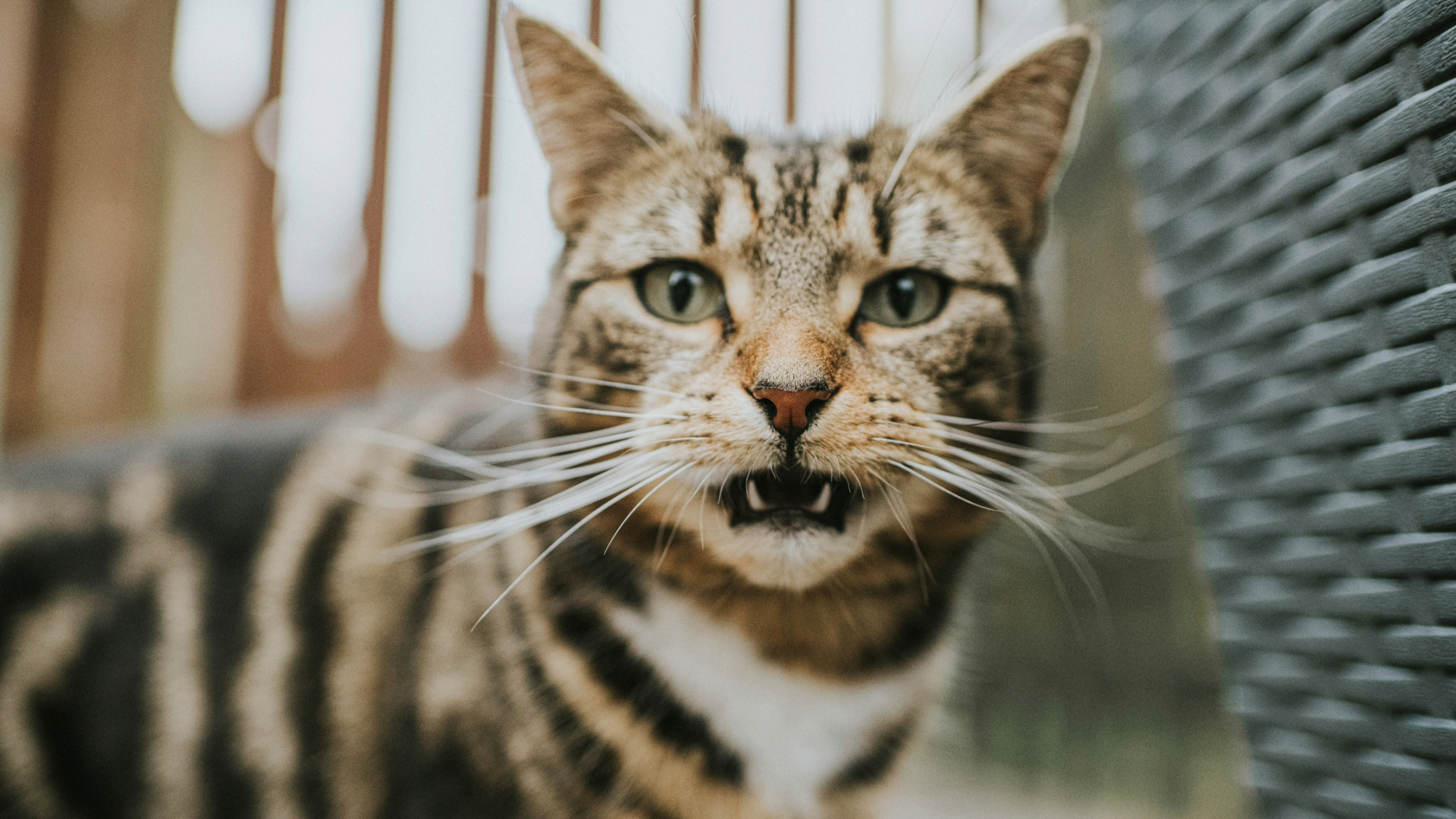
Is growling worse than hissing?
Growling is a low guttural sound made from air moving over the voice box. On the other hand, hissing is a sharper sound made from air moving over the tongue and teeth.
Both are warning sounds cats make when they’re asking you to back off or stop what you’re doing. One isn’t necessarily worse than others, and it seems to vary between cats. Some seem to hiss more readily, while others go for a growl. It’s not a clear escalation from one to the other.
Having said that, in my experience, hissing is usually closer to biting/scratching than growling. If a cat in their travel box is hissing, I’ll be slightly more cautious than when there’s a cat growling – but in both cases, I’m not going to blindly put my hand in there! Whether your cat is growling or hissing, a change of plan is generally in order.
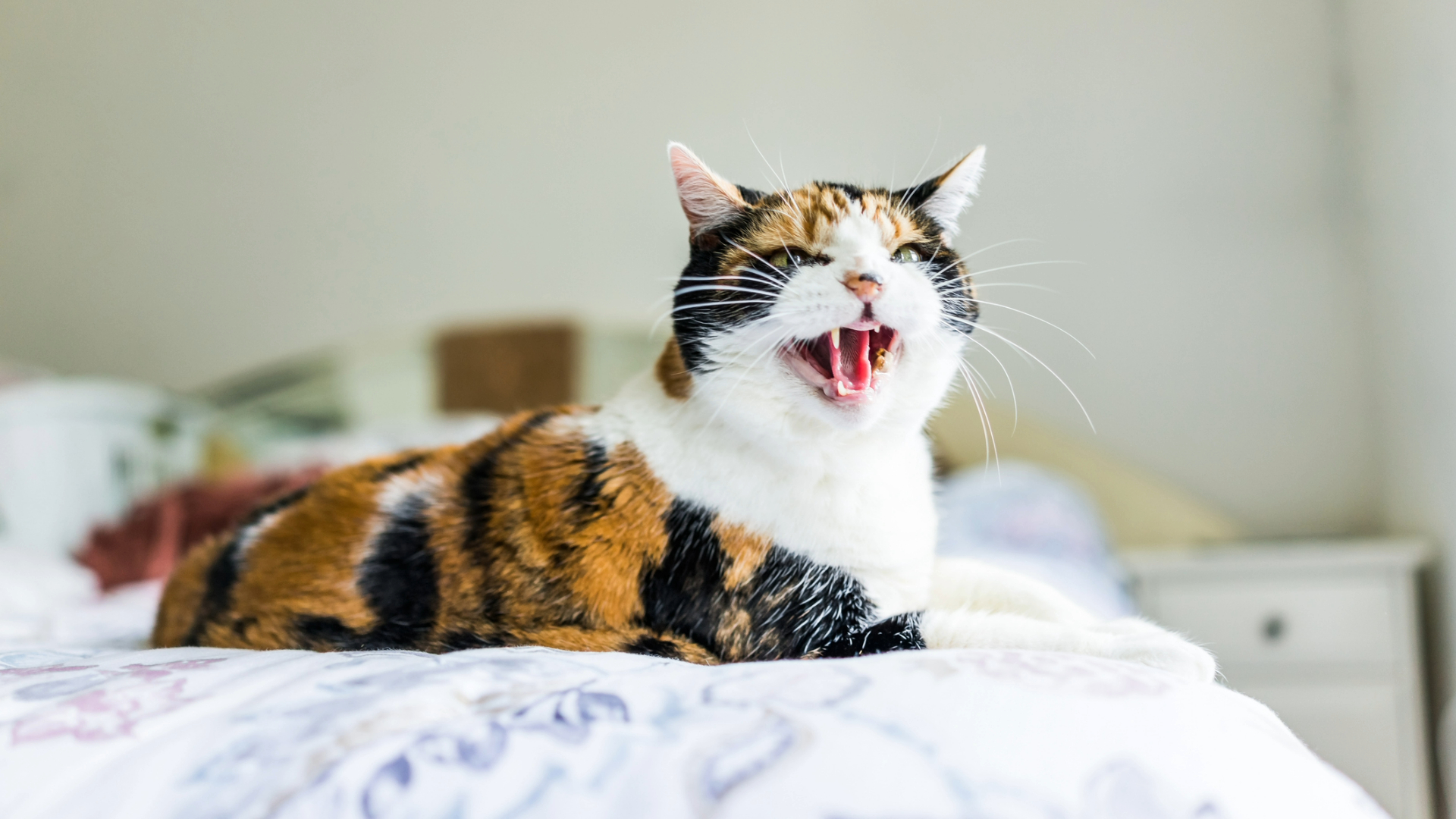
Cats can growl in lots of situations, but in all cases the advice is to stop what you’re doing and assess. Growling is communication, and by listening to what your cat is trying to tell you, you’ll have a far better relationship.
You might be interested in reading more about cat behavior problems. Or, if your cat is growling near their food bowl, our guide to food aggression in cats might be helpful.
After graduating as a vet from the University of Nottingham in 2016, Dr. Joanna Woodnutt went on to practice companion animal medicine in the Midlands. She quickly developed a love of consulting and helping clients with medical problems such as dermatology, behavior and nutrition - anything that involved helping clients understand their pets better.
Jo started writing about pet health in 2017, realizing that it meant she could help even more pet parents. Since then, she has written for countless online and print publications and is a regular contributor for Edition Dog Magazine. Jo is the director of The Veterinary Content Company, which she founded in 2020. She is also the founder of Petlearnia, a platform that provides pet e-learning courses for pet parents.
Jo now lives in the Channel Islands with her husband Ian and terrier Pixie.

